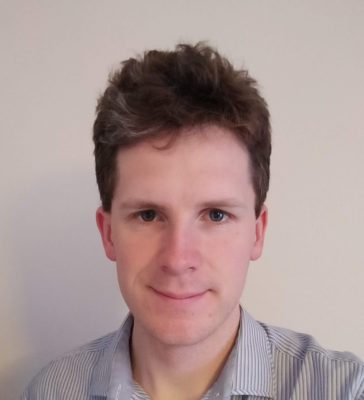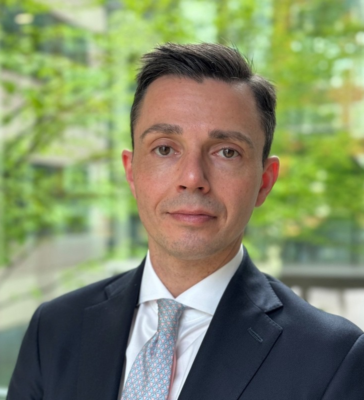
Martin Yeo
Current Employer/Organisation Name
Met Office
What have you been doing since leaving Exeter, and what are you doing now?
I originally moved to Nottingham for non-career reasons, and found a job applying my lab experience to microbiological testing for food safety. After 3 years I was able to transfer to a data handling position thanks to the relevant skills from my degree, and I helped with a number of improvements and new initiatives for reporting on factory performance. 2 years on, my accumulated experience allowed me to secure a more advanced data analysis role in vehicle rental back in Exeter, where I was able to work closely with the company’s administrators and database engineers to make much more effective use of available data to improve company operations. After 18 months I progressed to working within the database team thanks to my proven track record in the field and also in learning new skills generally. Following another 18 months I was offered a job at the Met Office – a role that combines my knowledge of the scientific world with my practical experience of technology: developing software for use in climatological research and reporting. The attitude and soft skills from my degree at Exeter have been essential in all my past roles, but in this position I am also making use of my specific training in science to better understand the software users’ needs. The Met Office itself is a wonderful place to work, full of enthusiastic people mixing in a collaborative atmosphere; it can sometimes feel like a campus!
Why did you choose this career? And what do you enjoy most about your work?
I’ve always been conscious that there are many things that interest me, so it was important not to define my career by my initial qualification (BSc Evolutionary Biology). I’ve done my best to use the skills gained at university to explore several different careers to get a feel for what engages me the most. Having done this, I’m now confident that I’m on the right career path for my long term future. I enjoy software development for the incremental improvements one is continuously making everywhere – that could be an improvement to a software user’s experience, or equally something that makes it easier to make more improvements to the software. And at the Met Office I am able to couple that day-to-day engagement with the overall satisfaction of contributing to the health of the world through better understanding of the climate. Some notable recent pieces of work I have enjoyed: enabling our software to work with data on a new coordinate system that is being output my the very latest climate models; lowering the barrier for collaboration outside the Met Office on improving our software (the open source software model); developing performance benchmarks to publicly demonstrate that our software is completing tasks in an acceptable time.
Please tell us if you were a member of any societies, groups or sports clubs?
I performed several committee for the EcoSoc society at the Cornwall Campuses, including setting up a website.
What did you enjoy most about your programme and what was the biggest highlight?
The biosciences faculty at Tremough nurtured a community feeling, meaning I felt much more involved and immersed than I might have expected at undergraduate level. This community spirit meant there were many opportunities for volunteer involvement of undergraduates in postgraduate research. Through my tutor Prof David Hosken and his doctoral student MD Sharma I was able to experience first hand the research process, and spend time with postgraduate and post doctorate researchers. This was instrumental in developing my understanding of what science really is. All this meant that when it came time to write my research project it took on a bigger significance beyond being a simple assignment, since I could clearly see its place within the wider field of evolutionary research.
What did you enjoy most about studying here?
The small, friendly atmosphere of Tremough campus and the surrounding area made it much easier to focus on studying compared to larger cities I have lived in since. My fellow students had similar attitudes on this – they made excellent study partners, fellow committee members and lasting friends. Being able to identify with the course and those around me helped keep the motivation high during the tough final months of my degree.
Why did you choose to study at Exeter?
Choosing Evolutionary Biology meant a choice between Edinburgh and Exeter. I chose Exeter since I felt the quieter smaller atmosphere would make it easier to adjust and focus; this was definitely the case!
What skills and experiences have been most useful for your career?
Scientists need to make effective use of technology to make progress. This idea was well taught during my degree, and we were exposed to a wide variety of equipment and software. Everything was unfamiliar, and I noticed an important key in making progress was to not be intimidated by new technology but to make the effort to work well with it. This has allowed me to find my career in software, and more generally not being intimidated by new experiences has helped me enormously in work and in life. Being on a society committee was also highly valuable in presenting different experiences and challenges compared to the degree itself. I learned a lot about effective communication from my time in EcoSoc.
What advice would you give to a current student who wishes to pursue your career?
Before making the decision, make sure you have also tried something different. Firstly: this comparison ensures your chosen career is truly important to you, rather than just being the path you were already on. Secondly: I have repeatedly found that bringing experience from multiple fields offers different insight that my teams have found incredibly valuable over the years – different fields present different challenges and the different approaches are very transferrable.
What are your plans for the future?
I’m looking forward to continuing my work at the Met Office. Having moved between different careers in the past, I’m by no means attached to software development forever, and there are plenty of opportunities to move between teams. I’m already noticing other areas where I might be able to help.

